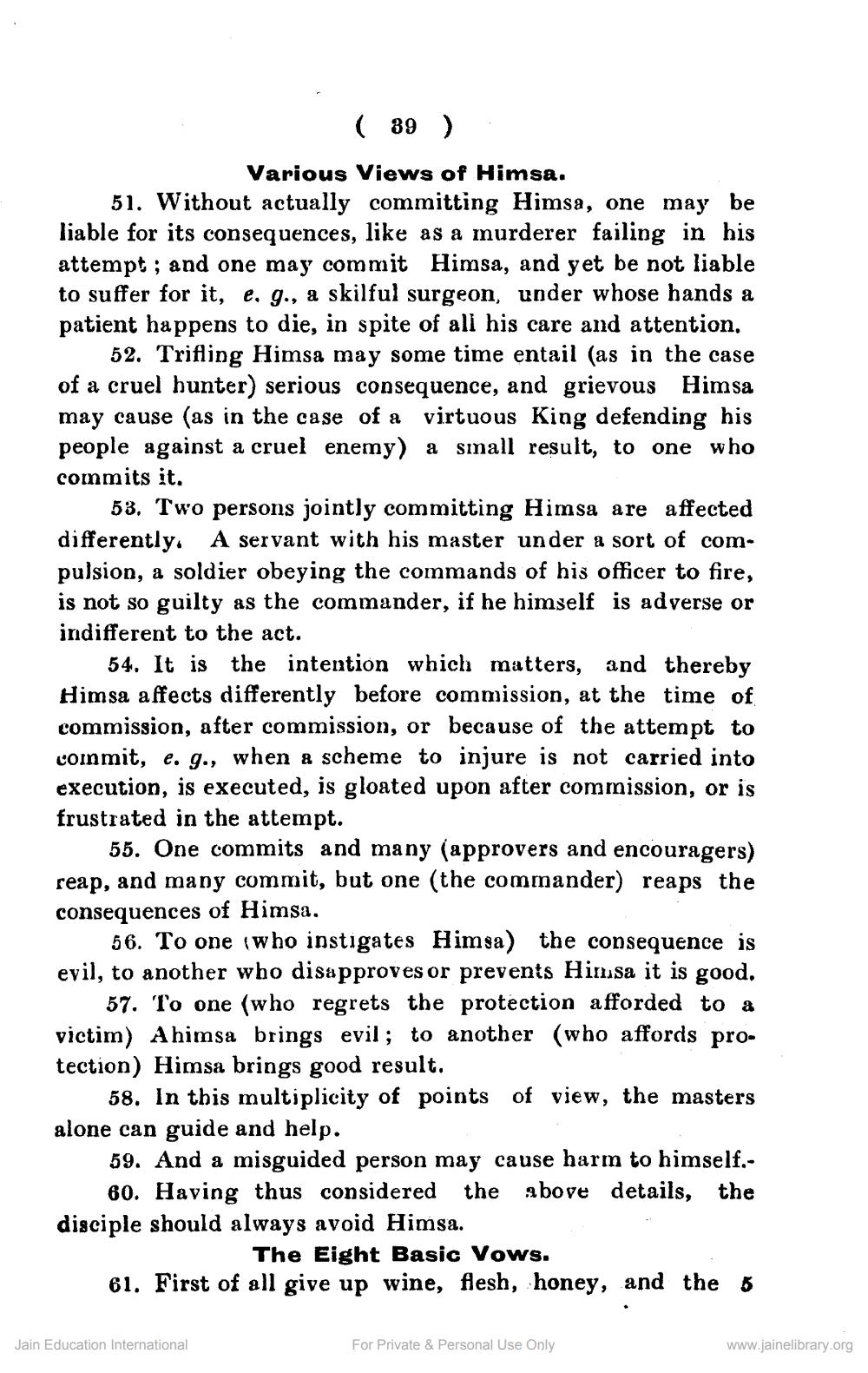________________
( 39 )
Various Views of Himsa.
51. Without actually committing Himsa, one may be liable for its consequences, like as a murderer failing in his attempt; and one may commit Himsa, and yet be not liable to suffer for it, e. g., a skilful surgeon, under whose hands a patient happens to die, in spite of all his care and attention.
52. Trifling Himsa may some time entail (as in the case of a cruel hunter) serious consequence, and grievous Himsa may cause (as in the case of a virtuous King defending his people against a cruel enemy) a small result, to one who commits it.
53. Two persons jointly committing Himsa are affected differently. A servant with his master under a sort of compulsion, a soldier obeying the commands of his officer to fire, is not so guilty as the commander, if he himself is adverse or indifferent to the act.
54. It is the intention which matters, and thereby Himsa affects differently before commission, at the time of commission, after commission, or because of the attempt to commit, e. g., when a scheme to injure is not carried into execution, is executed, is gloated upon after commission, or is frustrated in the attempt.
55. One commits and many (approvers and encouragers) reap, and many commit, but one (the commander) reaps the consequences of Himsa.
56. To one (who instigates Himsa) the consequence is evil, to another who disapproves or prevents Himsa it is good. 57. To one (who regrets the protection afforded to a victim) Ahimsa brings evil; to another (who affords protection) Himsa brings good result.
58. In this multiplicity of points of view, the masters alone can guide and help.
59. And a misguided person may cause harm to himself.60. Having thus considered the above details, the disciple should always avoid Himsa.
The Eight Basic Vows. 61. First of all give up wine, flesh, honey, and the 5
Jain Education International
For Private & Personal Use Only
www.jainelibrary.org




